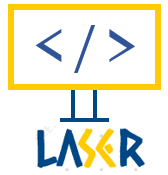Machine Learning
HeartBuddy
Author: Devyn Souza, Josh Shaw, Matthew Smith, Jake Intravaia
ElectroCardioGram (ECG) is a useful tool for diagnosing and monitoring a variety of heart-related conditions, including arrhythmias, heart attacks, and heart failure. Existing ECG models provide a limited average accuracy rate of 54% across all training levels. To address this issue, we propose HeartBuddy, an open-source software suite that delivers healthcare professionals with ECG data analysis of the electrical activity of the heart and provides valuable information about the heart’s function and health. HeartBuddy uses Machine Learning (ML) techniques to interpret ECG data. It utilizes feature extraction and confidence values to identify potential abnormalities present in the ECG. Healthcare professionals can examine the extracted features, such as the absolute maximum or peaks, to better understand the rationale behind the abnormality detection. HeartBuddy offers a user-friendly interface to display the expected values graphed alongside the actual values, which can help spot any potential abnormalities that could be present. The proposed ML model was trained using the verified PTB-XL electrocardiography dataset. This dataset was released in 2020 with 21,837 ECG samples from 18,885 patients collected between October 1989 and June 1996. Our model’s predictions are verified by utilizing an additional validated dataset. Additionally, HeartBuddy uses live data and an on-hand cardiologist to validate the correctness of the model. Lastly, the HeartBuddy’s ECG analysis provides rationale for predictions. With the help of our ML-based feature extraction model, HeartBuddy explains how it made an abnormality diagnosis. Moreover, by being open source, HeartBuddy boosts transparency by allowing the scientific community to engage in development and improvement of the existing framework to better match it needs.
